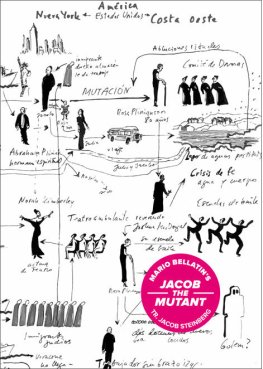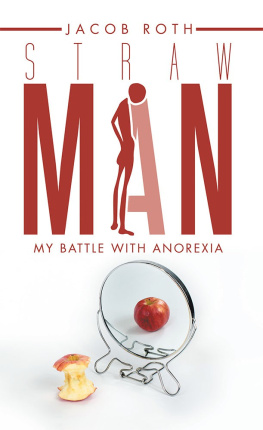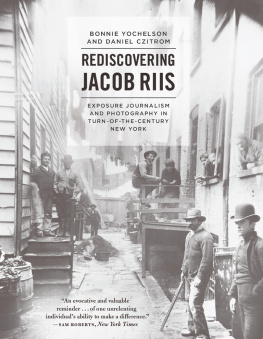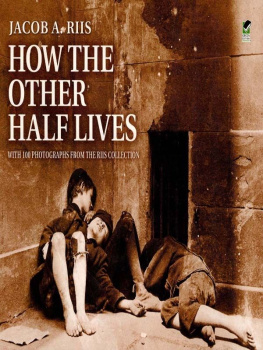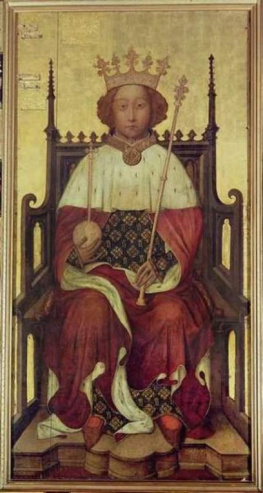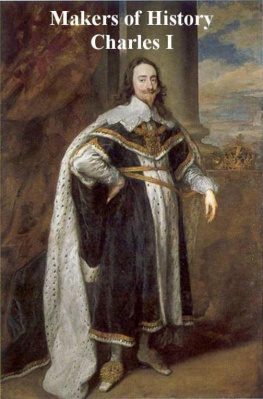Jacob A. (Jacob August) Riis - The Children of the Poor
Here you can read online Jacob A. (Jacob August) Riis - The Children of the Poor full text of the book (entire story) in english for free. Download pdf and epub, get meaning, cover and reviews about this ebook. year: 1892, publisher: Scribners sons, genre: Detective and thriller. Description of the work, (preface) as well as reviews are available. Best literature library LitArk.com created for fans of good reading and offers a wide selection of genres:
Romance novel
Science fiction
Adventure
Detective
Science
History
Home and family
Prose
Art
Politics
Computer
Non-fiction
Religion
Business
Children
Humor
Choose a favorite category and find really read worthwhile books. Enjoy immersion in the world of imagination, feel the emotions of the characters or learn something new for yourself, make an fascinating discovery.

- Book:The Children of the Poor
- Author:
- Publisher:Scribners sons
- Genre:
- Year:1892
- Rating:4 / 5
- Favourites:Add to favourites
- Your mark:
- 80
- 1
- 2
- 3
- 4
- 5
The Children of the Poor: summary, description and annotation
We offer to read an annotation, description, summary or preface (depends on what the author of the book "The Children of the Poor" wrote himself). If you haven't found the necessary information about the book — write in the comments, we will try to find it.
The Children of the Poor — read online for free the complete book (whole text) full work
Below is the text of the book, divided by pages. System saving the place of the last page read, allows you to conveniently read the book "The Children of the Poor" online for free, without having to search again every time where you left off. Put a bookmark, and you can go to the page where you finished reading at any time.
Font size:
Interval:
Bookmark:

JACOB A. RIIS
AUTHOR OF HOW THE OTHER HALF LIVES
CHARLES SCRIBNERS SONS
1908
CHARLES SCRIBNERS SONS
October 1, 1892.
| PAGE |
| The Problem of the Children, |
| The Italian Slum Children, |
| In the Great East Side Treadmill, |
| Tony and His Tribe, |
| The Story of Kid McDuffs Girl, |
| The Little Toilers, |
| The Truants of Our Streets, |
| What it is that Makes Boys Bad, |
| Little Mary Ellens Legacy, |
| The Story of the Fresh Air Fund, |
| The Kindergartens and Nurseries, |
| The Industrial Schools, |
| The Boys Clubs, |
| The Outcast and the Homeless, |
| Putting a Premium on Pauperism, |
| The Verdict of the Potters Field, |
| , |
| Saluting the Flag, |
| PAGE |
| The Mott Street Barracks, |
| An Italian Home under a Dump, |
| A Child of the Dump, |
| Pietro Learning to Make an Englis Letter, |
| Slept in the Cellar Four Years, |
| A Synagogue School in a Hester Street Tenement, |
| The Backstairs to Learning, |
| Class of Melammedim Learning English, |
| I Scrubs.Katie who Keeps House in West Forty-ninth Street, |
| Present Tenants of John Ericssons Old House, now the Beach Street Industrial School, |
| Their Playground a Truck, |
| Shine, Sir? |
| Little Susie at her Work, |
| Minding the Baby, |
| Shooting Craps in the Hall of the Newsboys Lodging House, |
| Case No. 25,745 on the Societys Blotter, Before and After, |
| Club Used for Beating a Child, |
| Summer Boarders from Mott Street, |
| Making for the Big Water, |
| Floating HospitalSt. Johns Guild, |
| Playing at Housekeeping, |
| Poverty Gappers Playing Coney Island, |
| Poverty Gap Transformedthe Spot where Young Healey was murdered is now a Playground, |
| The Late Charles Loring Brace, Founder of the Childrens Aid Society, |
| The First Patriotic Election in the Beach Street Industrial SchoolParlor in John Ericssons Old House, |
| The Board of Election Inspectors in the Beach Street School, |
| The Plumbing Shop in the New York Trade Schools, |
| A Boys Club Reading room, |
| The Carpenter Shop in the Avenue C Working Boys Club, |
| Type-setting at the Avenue C Working Boys Club, |
| A Bout with the Gloves in the Boys Club of Calvary Parish, |
| Lining up for the Gymnasium, |
| A Snug Corner on a Cold Night, |
| 2 A.M. in the Delivery-room in the Sun Office, |
| Buffalo, |
| Night School in the West Side Lodging-house.Edward, the Little Pedlar, Caught Napping, |
| The Soup-House Gang, Class in History in the Duane Street Newsboys Lodging-house, |
Font size:
Interval:
Bookmark:
Similar books «The Children of the Poor»
Look at similar books to The Children of the Poor. We have selected literature similar in name and meaning in the hope of providing readers with more options to find new, interesting, not yet read works.
Discussion, reviews of the book The Children of the Poor and just readers' own opinions. Leave your comments, write what you think about the work, its meaning or the main characters. Specify what exactly you liked and what you didn't like, and why you think so.

